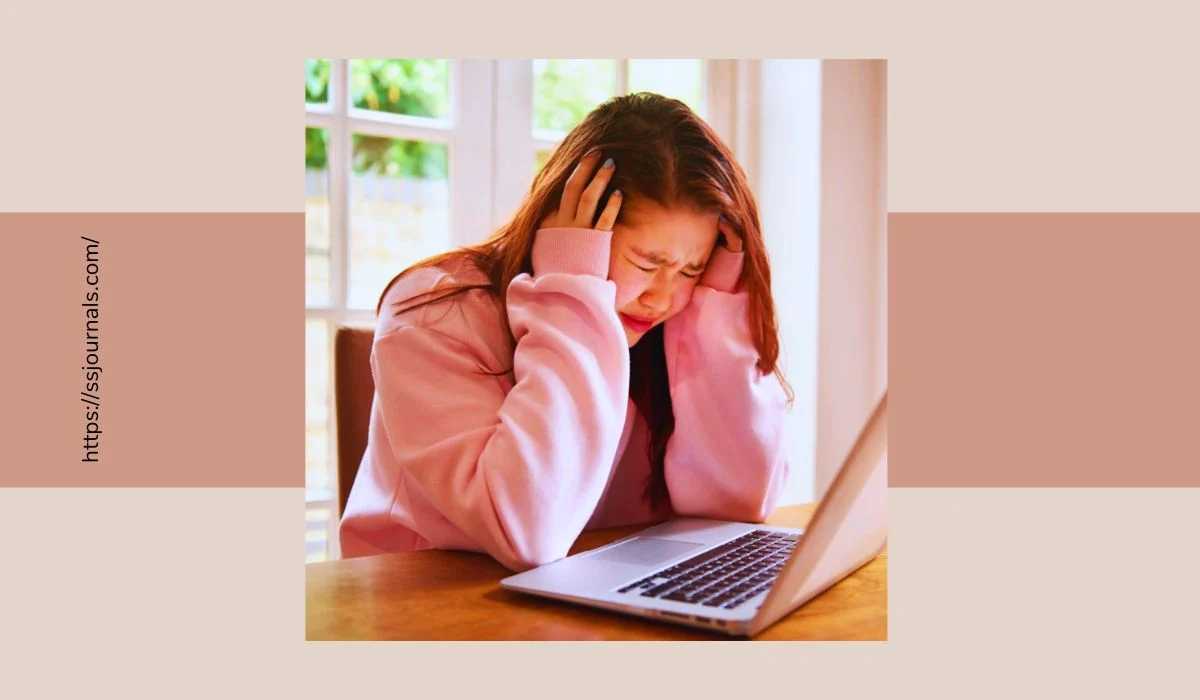Mental exhaustion, or burnout, makes us feel drained and overwhelmed. It’s the result of excessive workloads and constant stress. Symptoms can include fatigue, lack of motivation, difficulty concentrating, irritation, and increased illness.
Remember, mental exhaustion is severe and requires care. Self-care and support can help prevent it and maintain overall well-being.
Understanding Mental Exhaustion
Mental exhaustion is a state of extreme mental fatigue. It can happen after long periods of stress, overexertion, or intense mental activity.

Anyone can be affected, regardless of age or job. Symptoms of exhaustion include difficulty concentrating, memory issues, irritability, and a dip in productivity.
It’s important to know what causes mental exhaustion. Heavy workloads, long hours without enough breaks, and always having to perform can all lead to this condition. Personal issues, like relationship problems or money stress, can also be factors.
Causes Of Mental Exhaustion
To understand the causes of mental exhaustion, delve into the various factors contributing to this draining state.
Work-related stress, emotional and mental strain, and lack of self-care all play significant roles. Explore how each of these sub-sections offers a unique perspective and potential solutions to combat mental exhaustion.
▶️ Work-Related Stress
Tight deadlines and hefty workloads can cause work-related stress. Conflict with colleagues or bosses can also be a source. No control over one’s work or decisions may lead to frustration.
Inadequate work-life balance, where one can’t detach their personal and professional lives, can worsen the issue. Unclear job expectations or lack of support from management adds to the strain. The pressure to perform and meet targets also plays a part.
▶️ Emotional And Mental Strain
Work-related stress, relationship difficulties, financial pressures, traumatic experiences, chronic health conditions, and social isolation – can all contribute to emotional and mental strain.
Recognizing the specific triggers for emotional and mental strain in one’s life is vital. Ignoring the impact of this condition can lead to severe consequences.
▶️ Lack Of Self-Care
Self-care is doing things to boost physical, mental, and emotional health. If we don’t care for ourselves, it can lead to mental exhaustion. Here are six reasons why:
- Not paying attention to our needs: Not recognizing our wants and needs can make us feel drained and overwhelmed.
- Poorly managing stress: Failing to use helpful techniques to manage tension will add to mental exhaustion.
- No boundaries: Without setting clear limits with other people, we can be overworked and suffer burnout.
- No relaxation: Allowing ourselves to relax and take a break is key to recharging mentally.
- Not enough sleep: Not having enough rest can lower our ability to manage daily stress.
- No help: Not asking for help from others or professionals when we need it can make it hard to handle problems.
Symptoms Of Mental Exhaustion
To identify the symptoms of mental exhaustion, delve into the section on “Symptoms of Mental Exhaustion” with sub-sections: “Fatigue and lack of energy,” “Difficulty concentrating and making decisions,” and “Increased irritability and mood swings.” Discover these indicators to understand mental exhaustion better and find appropriate solutions.

📛 Fatigue And Lack Of Energy
Always feeling tired? Experiencing a lack of energy? This could be a symptom of mental exhaustion. When your mind is overwhelmed, it can make you feel drained and sluggish.
Mental fatigue often manifests as persistent tiredness, even after enough sleep. It makes it hard to find the energy and motivation to do daily tasks. This exhaustion affects not only physical state but also mental well-being.
📛 Difficulty Concentrating And Making Decisions
Long ago, folks like Sigmund Freud noticed mental exhaustion caused difficulties with concentration and decision-making. This is still true today. Signs include foggy or scattered thoughts, easy distraction, forgetfulness, and a sense of cognitive overload.
📛 Increased Irritability And Mood Swings
Mental exhaustion can manifest as increased irritability, sudden mood swings, and heightened sensitivity. Outbursts of anger and frustration can occur due to difficulty regulating reactions. It can also be hard to regulate emotions during social interactions.
If you or someone you know has these symptoms, don’t ignore them. Instead, try to take steps towards self-care such as setting boundaries and seeking help from professionals. Remember, seeking support is a sign of strength, not weakness.
Treatment For Mental Exhaustion
To address the treatment for mental exhaustion, consider exploring rest and relaxation techniques, seeking professional help, and implementing lifestyle changes. These avenues can offer valuable solutions to alleviate the symptoms of mental exhaustion and support overall well-being.
✅ Rest And Relaxation Techniques
- Meditation: Take a few moments daily to meditate. Close your eyes, focus on your breath, and forget your worries. This reduces stress & promotes inner peace.
- Deep breathing exercises: Simple yet powerful. Inhale deeply through your nose, hold, then exhale slowly through your mouth. Repeat to reduce tension & relax.
- Progressive muscle relaxation: Tense & release muscle groups to induce deep relaxation. Start from toe to head, focusing on each muscle group.
✅ Seeking Professional Help
Professional help is key when it comes to mental exhaustion. Skilled therapists provide support and guidance to help individuals cope. Treatment plans, therapy sessions, and evidence-based techniques can help restore balance in one’s life. Reaching out for help is a courageous step toward finding relief.
Therapists are pivotal in helping individuals manage emotions and thoughts related to mental exhaustion. They provide a safe, confidential space to talk without judgment.
Active listening and effective communication help clients gain insight into their experiences, identify triggers, and develop coping strategies. With their expertise, therapists empower individuals to make positive changes and alleviate mental exhaustion.
✅ Lifestyle Changes For Prevention
Small changes to your lifestyle can make a big difference in preventing mental exhaustion. Try self-care activities like exercise, meditation, and enough sleep.
Establish boundaries between work and life. Manage your time well and prioritize tasks. Get social support and limit tech use. Embrace healthy habits like nutritious meals, staying hydrated, and limiting caffeine and alcohol.
Did you know? The American Psychological Association (APA) found that making positive lifestyle changes lowers the risk of mental exhaustion. So remember, taking care of yourself is a must!

